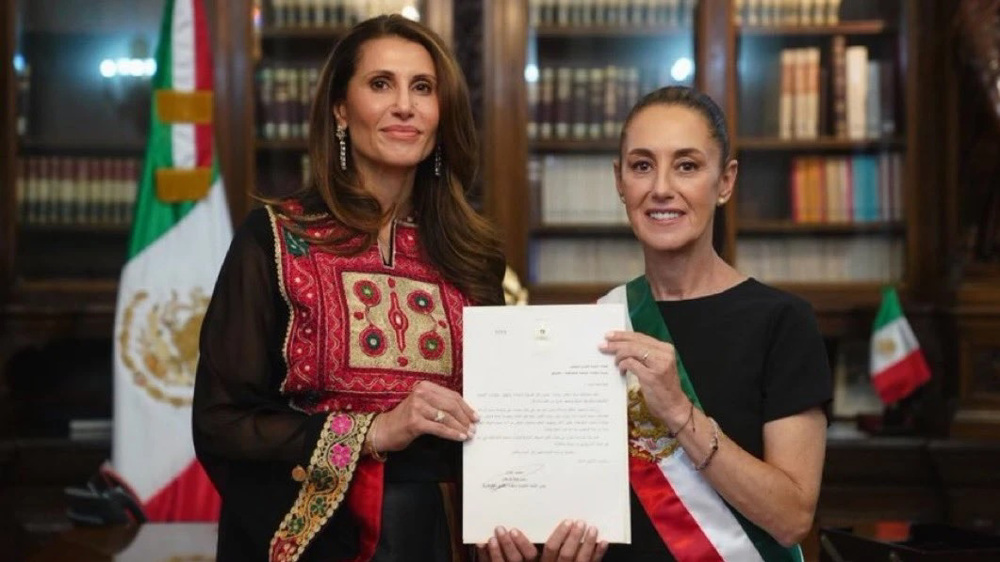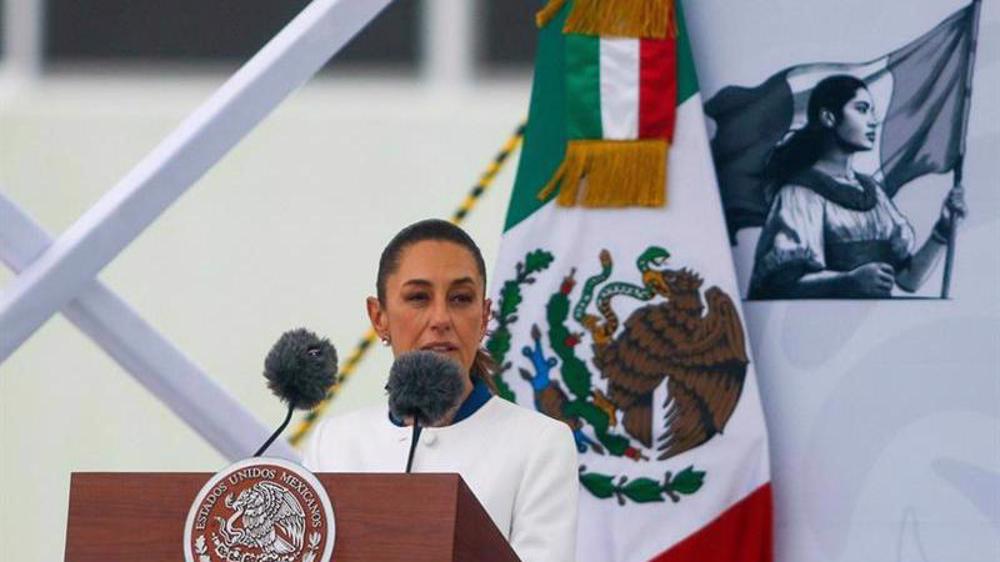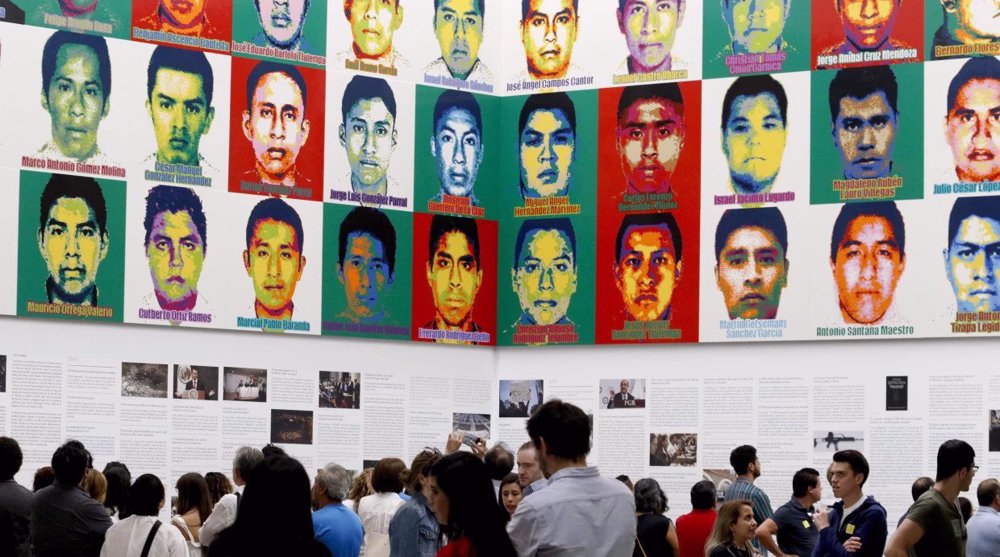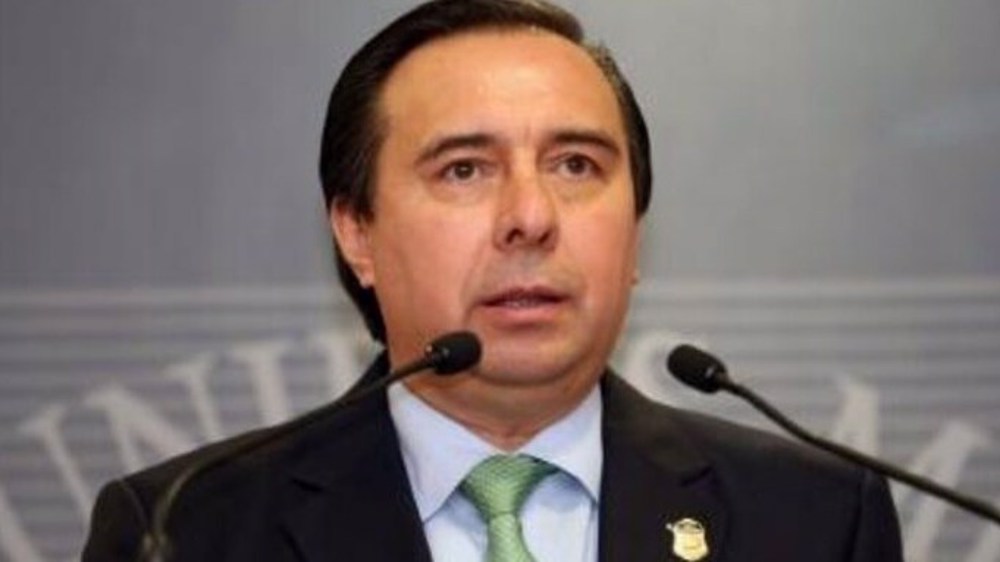Mexico says disappearance of 43 students in 2014 was a 'state crime'
In yet another damning assessment of the previous administration's complicity in gross human rights abuses, Mexican authorities have called the disappearance of 43 students in 2014 a “state crime”, which was scandalously covered up by the government.
“At all times the federal, state, and municipal authorities had knowledge of the students’ movements,” a government commission said in its preliminary findings. “Their actions, omissions, and participation allowed for the disappearance and execution of the students, as well as the murder of six other people.”
The disappearance of the students from the southwestern city of Iguala in September 2014, and a subsequent cover-up with the alleged involvement of high-level officials, has for long been a source of anger and outrage in the North American country.
The case sparked international outrage and dealt a heavy blow to the government of then-President Enrique Pena Nieto, with international human rights experts slamming the government's lackadaisical approach to finding the truth.
President Andres Manuel Lopez Obrador has pledged to release all information about the students, dismissing the previous government's version.
Alejandro Encinas, Mexico's top human rights official, told a news conference on Thursday that government involvement in the disappearances — including local, state, and federal authorities — was a "state crime."
In the aftermath, the last government "concealed the truth of the facts, altered crime scenes, covered up the links between authorities with a criminal group", he said, accusing the previous administration.
One of the students was a military informant, yet authorities did not follow protocol for finding missing soldiers, Encinas noted. If they had done that, "the disappearance and murder of the students would have been prevented," he hastened to add.
Despite extensive searches, the remains of only three students have so far been discovered and identified, according to Encinas.
The families of the students have long hoped that their loved ones will be alive and return home in the future. In the massive protests that they have held many times during these years while pressuring the government to follow up on the case of these students, they have chanted "We want them alive".
Encinas rarely officially acknowledged that the students did not survive.
The 43 students, studying in Mexico’s southwestern Guerrero State at the Raul Isidro Burgos Rural Teachers’ College in the city of Ayotzinapa, went missing on September 26, 2014, after corrupt police officers allegedly arrested them on their way to attend a demonstration in the southwestern city of Iguala.
An independent investigation released in December 2014 reported that the officers, linked to criminals, had handed the students over to local gang members, who then killed them.
The government has so far failed to determine the fate of the missing students.
Rights groups have slammed the Mexican government for its mishandling of the incident, describing it as a “stain” on its human rights record.
The Mexican government has displayed a “reckless approach to human rights,” Amnesty International said in a statement released in September 2016.
The allegations of police complicity in the incident have led to mass protests throughout the country.

Mexican president accepts new Palestinian ambassador

China vows response after Trump announces new 10% tariff

President: Mexico won’t accept US ‘invasion’ in fight against cartels
VIDEO | Gaza’s dire conditions hit unprecedented levels
VIDEO | Press TV's news headlines
VIDEO | Pakistan’s business and cultural front unites for Gaza: Nationwide shutdown, boycott announced
US jets carry out more aggression against Yemen
Syrian militants enslaving Alawite women in Idlib governorate: Report
VIDEO | US pro-Palestinian campus protest
VIDEO | Palestinian civil defense rejects Israel’s probe and exposes the crime
India downgrades ties with Pakistan after deadly Kashmir attack









 This makes it easy to access the Press TV website
This makes it easy to access the Press TV website